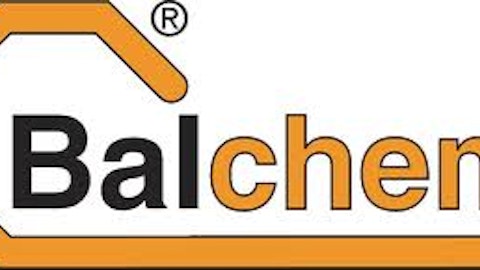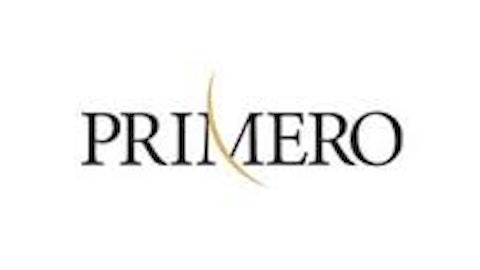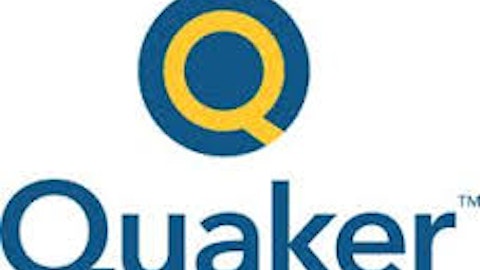Alcoa Inc (NYSE:AA) unofficially kicked off Q1 earnings season earlier this month by reporting that while its revenue had slipped slightly compared to the first quarter of 2012, earnings had risen strongly in percentage terms to 13 cents per share. The stock price rose slightly on the news, as the earnings results beat Street expectations.
Shortly afterwards- specifically, on April 12th- two members of Alcoa Inc (NYSE:AA)’s Board of Directors, Martin Sorrell and Ratan Tata, each directly purchased between 2,400 and 2,600 shares of the company’s stock at an average price of $8.20 per share. Insider purchases are often taken as bullish signals, since insiders should be quite confident in the company’s prospects in order to buy shares rather than diversifying their wealth.
Studies show that stocks bought by multiple insiders are particularly likely, though of course not certain, to outperform the market (read our analysis of studies on consensus insider purchases). We would note, however, that Tata and Sorrell have both bought Alcoa Inc (NYSE:AA) stock several times in the last two years (including both in early January, though a smaller number of shares). See a history of insider purchases at Alcoa.
At a market capitalization of $8.6 billion, the aluminum company (which is fully vertically integrated from the mining of bauxite to the production of sheet and foil) trades at 36 times trailing earnings. However, the market seems to have improved (as shown by the recent results) and if we annualize adjusted Q1 earnings per share we get a P/E multiple of only 18. That is still a bit higher than we’d like unless there is more earnings growth on the way, and of course we wouldn’t rule out the possibility of a temporary spike in earnings. Consensus for 2014 has Alcoa Inc (NYSE:AA) trading at 10 times forward earnings estimates.
We track 13F filings from hedge funds and other notable investors, using the included information (these filings disclose many long equity positions in U.S. stocks as of the end of each quarter) to develop investing strategies; we have found, for example, that the most popular small cap stocks among hedge funds earn an average excess return of 18 percentage points per year. The largest position in Alcoa Inc (NYSE:AA)’s equity among the filers we track as of the beginning of January belonged to Ron Gutfleish’s Elm Ridge Capital, which owned 3.7 million shares (find Gutfleish’s favorite stocks). Renaissance Technologies, founded by billionaire Jim Simons, initiated a position of 2.1 million shares during Q4 (see Renaissance’s stock picks).
Arguably the insider purchases could be taken as bullish on the aluminum industry in general rather than Alcoa Inc (NYSE:AA) specifically. Other aluminum companies include Alumina Limited (ADR) (NYSE:AWC), Kaiser Aluminum Corp. (NASDAQ:KALU), Century Aluminum Co (NASDAQ:CENX), and Aluminum Corp. of China Limited (ADR) (NYSE:ACH). These are all considerably smaller than Alcoa Inc (NYSE:AA) in terms of market capitalization. Alumina Limited (ADR) (NYSE:AWC) is expected by the sell-side to be barely profitable for this year, and its forward P/E is the highest of this peer group; given the commodity nature of the business, we would avoid it.
Century Aluminum Co (NASDAQ:CENX) and Aluminum Corp. of China Limited (ADR) (NYSE:ACH) are unprofitable on a trailing basis, with analysts expecting net income to improve enough that their forward earnings multiples are only slightly higher than Alcoa’s. Still, we aren’t convinced that they merit that premium particularly with their businesses struggling recently. Kaiser Aluminum Corp. (NASDAQ:KALU)’s trailing P/E is only 13, placing it at something of a discount to Alcoa even with that company’s most recent quarter annualized. It too has been improving its bottom line compared to a year ago.
We’d advise some caution in looking at aluminum stocks at this time, even with the consensus insider purchases, or at least being sure that an investor’s portfolio is not too exposed to macro conditions (there’s also the factor that these particular insiders have bought Alcoa in the recent past with poor results). If there is an interest in the industry, Kaiser and Alcoa seem like safer prospects than their peers but it might be best to wait for another quarter of results to see if the companies can sustain their recent earnings performance.
Disclosure: I own no shares of any stocks mentioned in this article.





